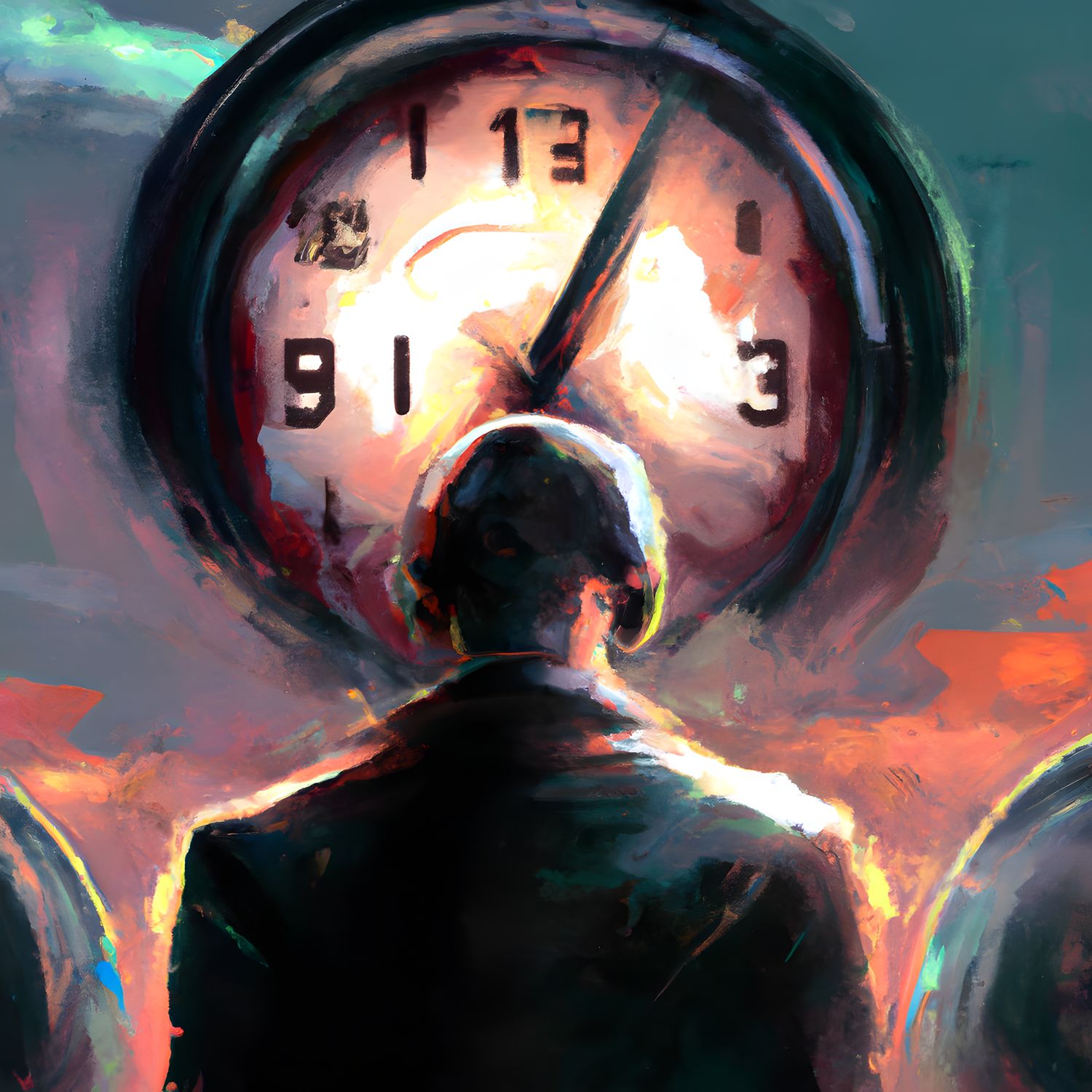The question of time is a pressing one. How we perceive past, present and future has an enormous impact on our quality of life. This week, I want to take a closer look at our perception of time and its actual relevance. Understanding this, considering its immediacy, is crucial to building a philosophy of life that works in our favor.
How We Think About Time
Everything is bound by it. We can feel it, a river that flows forward relentlessly. We cannot stop it. Our society places the commitment to the passage of time above everything else. It seems that every step we take is another attempt to escape our inevitable demise.
We treat time like a resource, like something we can "spend" wisely or foolishly. Our idea of productivity is build on this foundation. Whatever is achieved, is measured with a clock, its merit judged against comparable values. We treat time like we treat money. Both seem hopelessly entwined. One without the other is meaningless.
Clocks govern our lives. Everything happens at a certain time and expectations are placed upon us in relation to when these should come to fruition. All this is to say, clocks have a position in our society that far outweighs their actual usefulness.
Just keep going. Keep at it. Push through. Just a little bit further. We subscribe to a collective belief that our efforts will amount to something. What we desire is just around the corner. We put the lives we want to live in the future, always. We disregard our present experience and accept almost any kind of suffering.
And at the end of the line, all of our efforts seem to be fueled by the truth of our mortality. This idea that there is a ticking clock hovering over each of us that no one can see. We intuitively know our time is limited, even if the actual limit will not be revealed until the moment of our death.
This is all understandable, in fact, it is normal. This is a perception, an understanding of time and its passage that has its roots in our particular psychology. We can feel it, it is an experience. But like so many things, I want to argue that it is not only an illusion, but that this understanding is actually hurtful to our lives and a determent to our wellbeing.
Is There Any Scientific Basis?
Nobody really knows what time is, but everyone from physicists to philosophers seems to agree that it does not actually pass. The idea of past, present and future are a byproduct of our perception. Einstein himself admitted that time is the most stubbornly persistent illusion. It is an additional dimension. On paper, it’s just another axis. There is no actual process in the universe that turns present into past, or future into present.
When we try and locate an event, we can look at space and velocity, but we can also look at time. We can measure it using a clock, just like we can measure distance using a ruler.
However, these measurements are relative. Depending on where we are located in space, and at what velocity we move, what is the present to me, might already be the past to you and vice versa.
Time seems to exist as a single block or timescape. A temporal space that holds all of the moments we call present. Our senses project a sequence of events onto these moments, a past and a future.
Then What Should Time Be?
Our frantic race from the clocks seems to lead right to the very thing we are running from. We give time too much meaning and the ticking clocks too much power. We spend our lives in a fictional future that might never come, all in an attempt to escape the only thing that will.
This relationship we have with time leads us to dismiss the space where our lives actually take place. That infinite space for experience, the boundless capacity for change that is our nature. We need to build and nurture a rich relationship to what we call the present. It is the only way to live with what we have.
Alan Watts refers to this as the art of dying in the middle of life. This sounds more flamboyant than it is, really. All it means is to be willing to renounce the compulsion to be anything. We don’t need to be anything because we already are something, by default. Our human nature is something we were born with. We can be just that, at any moment. We can use what we have to live the life we want.
The reality is that dying in the middle of life is not possible, or even advisable to its fullest extent. The philosophy of being I am proposing in these notes is also an illusion. A description of an ideal state. Many of our wrongly held beliefs are, at the same time, the drivers that hold our society together. What I am proposing is to be critical of the views we hold. To change just enough to live a better life in the world we have. To die just a little bit.
Sources and Further Reading
Davies, P. (2014, October 24). Time’s Passage is Probably an Illusion. Scientific American. https://doi.org/10.1038/scientificamericantime1114-8
Holt, J. (n.d.). The Grand Illusion. Lapham’s Quarterly. Retrieved October 27, 2022, from https://www.laphamsquarterly.org/time/grand-illusion
Jaffe, A. (2018, April 16). The illusion of time. Nature. https://www.nature.com/articles/d41586-018-04558-7


